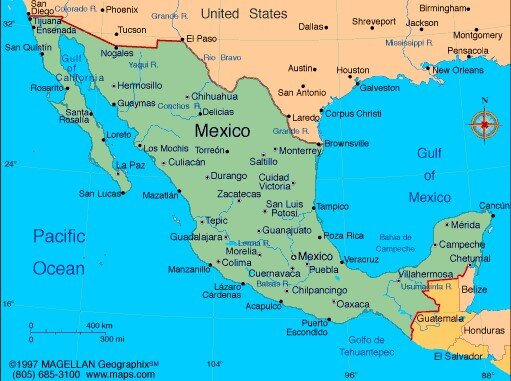I took issue in my previous post with those who live by some fixed truths they are unwilling to have questioned. The idea of climate change has certainly not simply been invented but, so far as I know, neither has it been 100 percent proven. To claim one or the other is an example of what I mean by a fixed truth or a dogma.
Similarly, liberal education is not about spreading around fixed truths like these two. It doesn’t matter if the so-called truth in question is considered politically liberal or politically conservative because being politically liberal is a lot different from being liberally educated.
Liberal Education
Liberally educated people do not go around asserting either that climate change is 100 percent proven or that it is a hoax, that the nation’s borders ought to be entirely open or entirely closed. These are dogmas that might go viral for a day or two but finally get us nowhere.
The only sensible question is what the bulk of the evidence has suggested and for that, we need to listen to what the best-informed people have concluded. That is the basis on which we make up our minds with due regard for, and fairness to, such opposition as they may have encountered. The liberally educated do not look for truth in shouting matches. It exists not inside but outside ourselves–that is, in the evidence, and must be patiently discovered there.

The liberally educated also attend to the difference between our political and our cultural differences. I was recently told about a church-going Alabama woman who, when she heard some animal invade her cherished bird’s nest, said that she headed straight to her closet to fetch her thirty-eight. Alabama’s gun laws are among the least restrictive in the nation and yet, if this woman were asked to support legislation limiting the access of Alabama children to firearms, I imagine she might do so. In other words, she could think with the culture of her state in rejecting gun control overall, but make an exception in this particular political case.
Similarly, hunting is a much-loved hobby for several of my neighbors in upstate Pennsylvania. But I’m pretty sure some of them agree with the recent Pennsylvania law that requires those convicted of domestic violence to hand over their guns within 24 hours instead of keeping them for 60 days as used to be the case. The gun culture is one thing, gun control politics is another, and the two don’t necessarily coincide.
Inclusion and Diversity
Like so many other colleges these days, the one I taught at until my retirement several years ago emphasizes its commitment to inclusion and diversity. I agreed with that commitment. I also agree that proven student behavior like scratching anti-Semitic phrases on blackboards or shouting out the N-word should be punished with penalties like suspension. But the terms “inclusion and diversity” have become so exhaustively repeated on campuses, and often preached rather than explained, that they strike some students still ignorant of history as lacking in enforceable meaning. That may be one reason why blatant cases of discrimination persist on campuses.

I remember admiring a former student of mine from Texas. Basing a paper she wrote on the practical experience of her and her family, she had the nerve to question the universal and automatic correctness of “inclusion and diversity.” She had been brought up in a San Antonio school district where social service taxes, which included school taxes, had risen so high that her family, already burdened with huge college expenses, had seriously to consider moving elsewhere. Their politically liberal neighbors insisted that the hidden cause of the family’s discontent was not financial distress, but an objection to the nearby overflow of Mexican immigrants, many illegal, for whom newer and larger schools had to be built.
My student had clearly been troubled by this accusation of prejudice, which was repeated by her classmates in our discussion of her paper. The evidence she gave for her argument, however, had to do not with the local increase in Mexican immigrants, whom she described with unfailing respect, but with the notably excessive tax increase on hard-pressed neighborhood families. Her paper far outclassed those of the many other students who relied on tiring invocations of the words “inclusion and diversity,” presumably on the assumption that my grade would indicate how profoundly I would bow before them.
Discovered Evidence vs Righteous Insult

In short, my Texas student demonstrated her regard for discovered evidence as opposed to righteous insult, and her good grade reflected that. The students in our class who, along with some of her family’s San Antonio neighbors immediately accused her of prejudice, were preachers of liberal dogma, perhaps more accurately described as liberal cruelty. Ignoring local culture and particular circumstances, these dogmatic, “fixed truth” liberals are the opposites of the extreme political conservatives whose ahistorical dream of restored American greatness hints strongly of white supremacy.
Will We Remain Divided?
Whether the shouting matches between these two groups will remain the norm of American discourse, and the symptom of a divided culture that it now is, remains to be seen. Meanwhile, its fury demonstrates the value of the quieter, more reasoned approach to our problems characteristic of a “liberal” education, the kind that now seems pretty close to defunct.
This blog article was written by Flying Angels Corporate Ethicist Ronald Wendling. In addition to his posts here, his thoughts can be found on his own blog page Keeping up with Ron.
